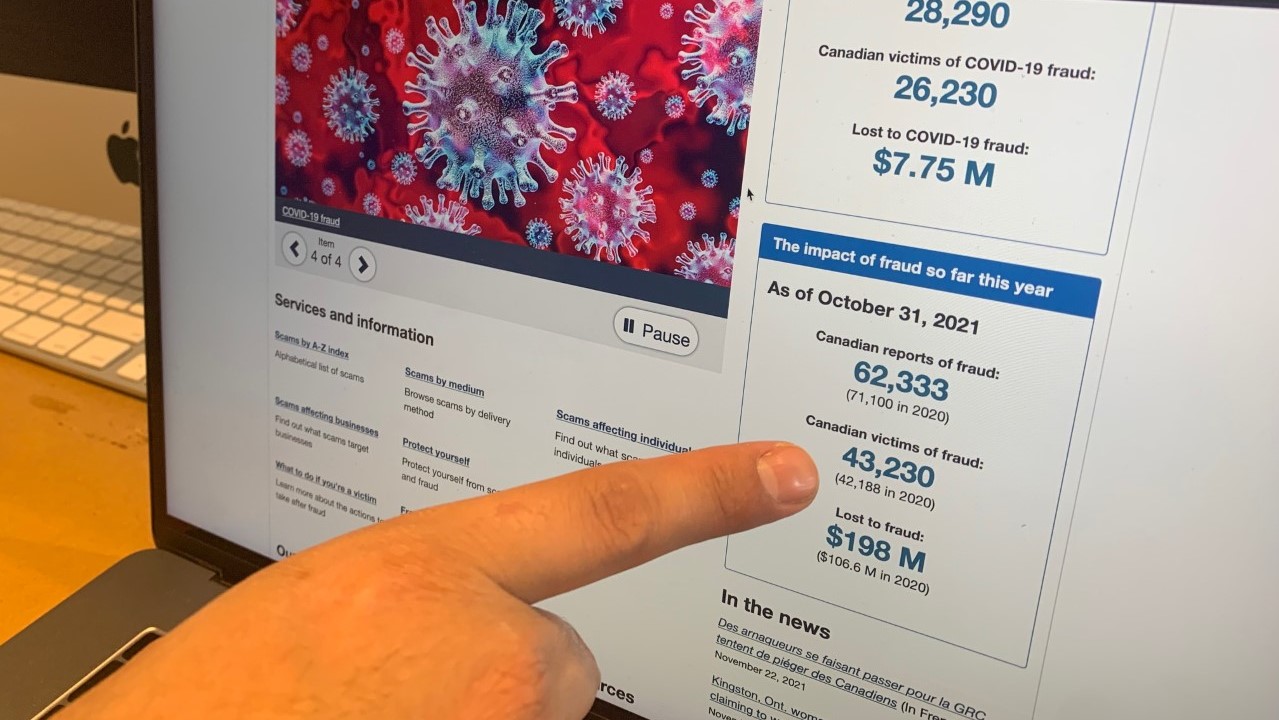Seniors more vulnerable to scams during pandemic, says advocate
'Great uptick' in time online means more opportunity for fraudsters

caption
Numbers from the Canadian Anti Fraud Centre point to an increase in scams in Canada.Online scammers have increased their attacks against seniors during the COVID-19 pandemic, says one advocate.
Bill VanGorder, the vice-chair of the Canadian Association of Retired Persons (CARP), said that seniors have been targeted with scams because they do not have as much contact with friends and family as they did before the pandemic.
According to the Canadian Anti-Fraud Centre, Canadians of all ages have lost $198 million to fraudsters this year. Statistics provided by the centre show that scams reported by seniors in Nova Scotia have gone up drastically since 2020.
Last year, seniors in Nova Scotia lost about $105,000 and this year they have lost about $515,000. This is a higher rate of increase than the Canadian average.
Overall numbers for Canada are about $16 million in 2020 and $36 million in 2021. The 2021 numbers will grow, as they only include frauds reported until Oct. 31.
“There’s been a great uptick in the last two years of seniors being more willing to use email and social media,” said VanGorder.
“They tend to be more easily attracted and caught by those scams.”
According to VanGorder, there are three major types of scams that seniors have to look out for.
The first is romance fraud, which involves a fraudster trying to befriend their victim online, and then after the victim feels they can trust them, asks for money. VanGorder said that it is usually a small amount to start, but then the requests for money will get larger over time.
Then there’s computer fixing fraud, where the scammer will pretend there is something wrong with the victim’s computer, acquire access to their system and then charge large sums of money or steal critical information.
Finally, there’s grandparent fraud, with scammers posing as grandchildren in need of help.
“They pretend to be a grandchild saying help I need money and I don’t want to tell mum and dad,” said VanGorder. “Grandparents do that because they love their grandchildren.”
After consulting with industry experts and CARP members, VanGorder said it is estimated that only 20 per cent of cases of fraud against seniors are reported. He thinks embarassment is the main reason many of his group’s members do not report being defrauded.
“When they find out they have been defrauded or scammed they are so embarrassed by doing it, or they don’t think anyone can do anything about it, that they just don’t report it,” said VanGorder.
He says the CARP website has information for seniors on how to avoid being defrauded online.
Halifax Regional Police spokesperson Const. John MacLeod wants the public to be careful when responding to online contacts who ask for money.
Both he and VanGorder warn against email scams that appear to be legitimate communication from banks or government agencies. They both said fraudsters have started using official-looking logos and email addresses to fool their victims.
“Never share your personal information online,” said MacLeod. “Don’t let yourself feel pressured.”
MacLeod recommends anyone receiving online correspondence asking for payment should call the organization or company to verify if the request is legitimate

